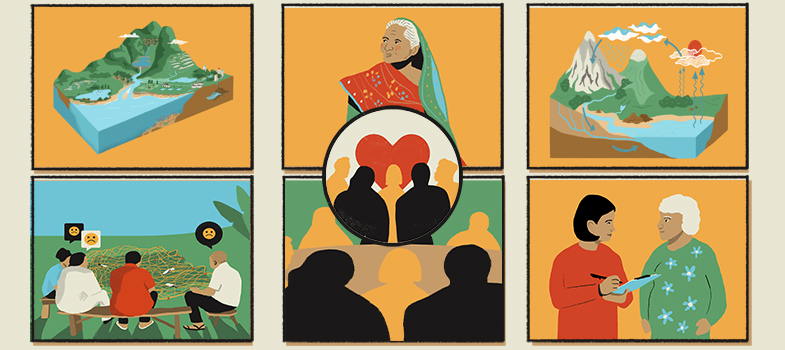Our relationship with water and wetlands
2. Wetlands
2.2. Benefits of wetlands
Wetlands are incredibly important for wildlife and people. Humans and the natural world, with all of its biodiversity, depend upon the healthy functioning of wetlands and the benefits they provide including resources such as food, water and shelter, regulation of the climate and natural hazards such as flood and storm protection, important processes such nutrient cycling and carbon storage and for humans cultural and social benefits such as maintaining health and well-being.
![]()
- Wetlands ensure freshwater for all – they supply clean water
- Wetlands filter harmful waste from water – they treat pollution
- Wetlands can store carbon and mitigate climate change
- Wetlands are critical for biodiversity
- Wetlands guarantee our food supply e.g. fish and plants such as rice
- Wetland plants are harvested for fuel and fibre
- Wetlands sustain livelihoods e.g tourism
- Floodplains, lakes and marshes can absorb flood waters
- Lakes, ponds and marshes can maintain groundwater levels and prevent drought
- Coastal wetlands can prevent shoreline erosion
- Coastal wetlands can reduce storm damage from wave and cyclone impacts
- Wetlands are important spaces for recreation and cultural activities
